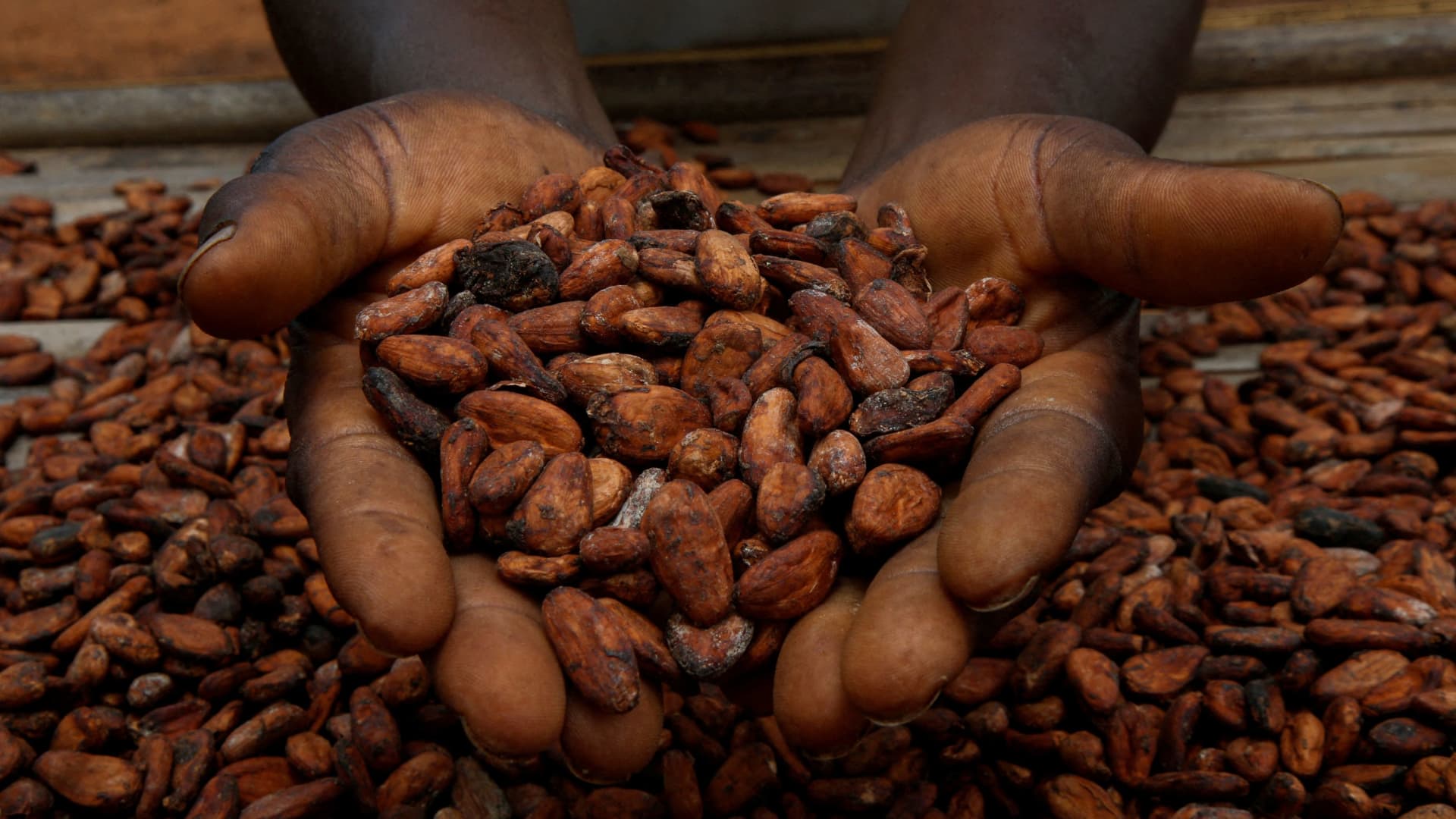Chocolate’s key ingredient has soared in commodities markets throughout 2024. Spot prices for cocoa began the year around $4,200 an ounce, then hit an all-time high of more than $12,000 an ounce in late April before settling above $9,000.
Factors such as crop disease, El Niño, farm-gate prices and market speculation all played big roles in cocoa’s historic price run-up.
“The supply side factors are still very much a major problem, and I think they will continue to be for the next few years,” said Paul Joules, agricultural commodity analyst at Rabobank.
As the chocolate industry grapples with higher input costs, consumers are feeling the pinch, and chocolate providers are beginning to consider alternatives.
“If we’re looking from the angle of the consumer, certainly I would say the worst is still to come,” Joules said. “In terms of the price increases they’re going to face, even if we were to see a big reduction in the commodity futures pricing, because likely we would still see that increase at the shop floor in the next few months.”
Cargill is now considering cocoa-adjacent alternative ingredients to make its chocolate products. The food and beverage company partnered with Voyage Foods in April to produce the alternatives.
“It’s not like we have a huge amount of demand of everyone saying we just need as much cacao-free chocolate as possible for the next six months, because these are storied and loved brands,” said Voyage Foods co-founder Adam Maxwell. “Because of that, it’s much more than just, we’re going to switch out this one ingredient for now.”
Watch the video above to learn more about the causes of this prolonged price rise, and what’s next for the industry.





















Discussion about this post